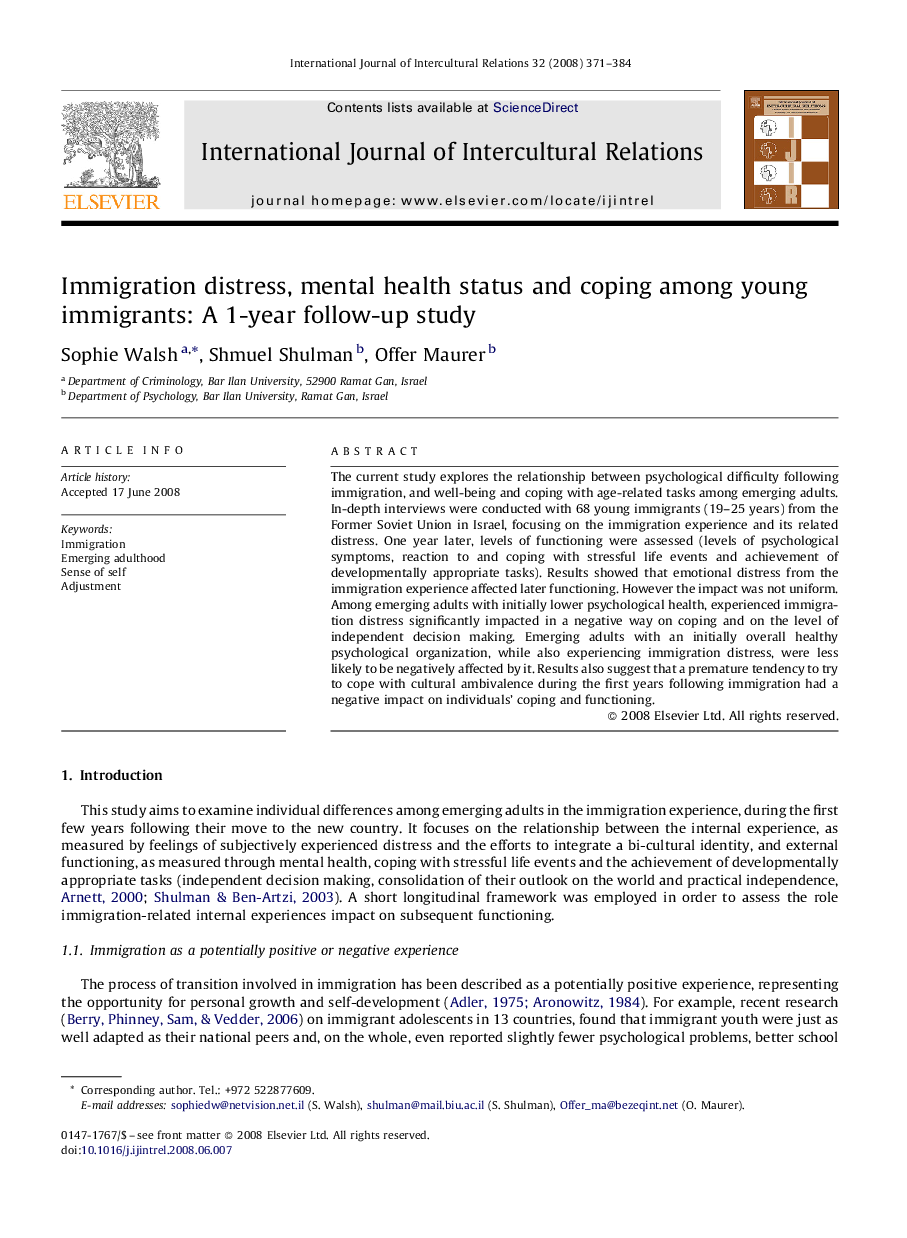| Article ID | Journal | Published Year | Pages | File Type |
|---|---|---|---|---|
| 947503 | International Journal of Intercultural Relations | 2008 | 14 Pages |
The current study explores the relationship between psychological difficulty following immigration, and well-being and coping with age-related tasks among emerging adults. In-depth interviews were conducted with 68 young immigrants (19–25 years) from the Former Soviet Union in Israel, focusing on the immigration experience and its related distress. One year later, levels of functioning were assessed (levels of psychological symptoms, reaction to and coping with stressful life events and achievement of developmentally appropriate tasks). Results showed that emotional distress from the immigration experience affected later functioning. However the impact was not uniform. Among emerging adults with initially lower psychological health, experienced immigration distress significantly impacted in a negative way on coping and on the level of independent decision making. Emerging adults with an initially overall healthy psychological organization, while also experiencing immigration distress, were less likely to be negatively affected by it. Results also suggest that a premature tendency to try to cope with cultural ambivalence during the first years following immigration had a negative impact on individuals’ coping and functioning.
